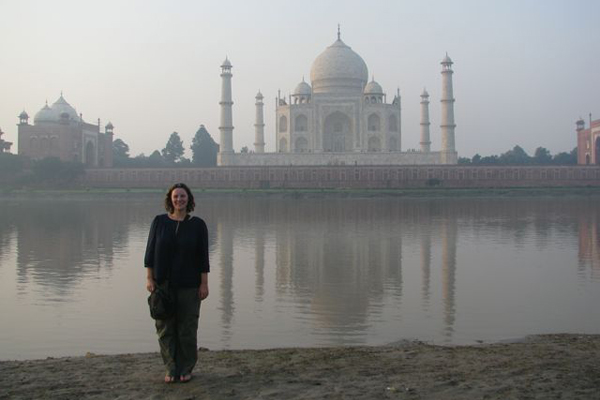
My career break to travel wasn’t planned, but once started, it lasted two years and took me to 16 countries across four continents. I’m not independently wealthy, nor have some secret to blogging success that others haven’t figured out. Instead, I used 10 years of professional experience to sell myself into short-term consulting gigs during an economic downturn and pay for long-term trips to India, Southeast Asia, the Middle East, and Europe.
My first big trip developed because I needed a life break as the result of a divorce. I decided to leave, among other things, my excellent post-MBA job and take some time off to travel to India. When I returned a few months later to a very cold Midwest winter, the only answer I had to the endless “what now?” questions was “All I want to do is travel again.” Where? Egypt. How long? As long as I can.
Initially, the hardest question for this security-minded Midwesterner was, “how do I pay for it?” Consulting proved to be the answer. This article contains a few tips I learned along the way to help those considering a career break to travel understand how to use consulting as a way to pay for it.
Believe in Yourself
Believe that you can do it – traveling for as long as you want AND paying for it. There may be a fear that no one will hire you if you’re a traveler or have a flight plan. This fear is extraneous for educated professionals with years of experience – most have sellable skills and wide networks ready to mine for consulting opportunities.
In winter 2009 – when the Dow Index started with a “6” – I believed I could find a job to pay for my next big trip and strove to do so. Several recruiters called for lucrative positions in Arkansas and Texas, promising full-time, permanent employment in “this economy.” But I politely declined their offers, believing I was meant to travel.
Showcase the Skills You Can Sell
As a consultant, thy name is the brand and thy resume, portfolio, and interviews the marketing. Potential clients want to know that you can step in with a professional demeanor, take charge when the way is unclear, and deliver effectively to the short and longer-term project goals. In addition to technical skills or an industrial focus, a consultant’s resume is succinct and showcases leadership and results.
My resume always includes a summary to hit the technical and industry experience and then shows actual results as evidence of my experience and expertise. In interviews, my stories elaborate on the results delivered and skills needed following a succinct STAR format: Situation, Tasks, Actions, and Results. My portfolio has a few key examples that illustrate my most successful or applicable projects. Even if there wasn’t a fit, agencies and recruiters were happy to connect me with other opportunities because I showcased well.
Get Creative
Consulting jobs are typically by word of mouth or through staffing agencies. I did not know this when I first started, so I applied for full-time jobs where I had the skills and experience. After getting an HR recruiter or hiring manager on the phone, I listened to their needs. Then, I would explain what I was looking for: a consulting or contract position and could step in immediately on their projects. Then, I’d shape the conversation to tell them what I could do for them in the immediate future. My creativity paid off during the depressed economy when companies had work, but little desire to add overhead.
Honestly, Ask for What You Want
When there’s a good job available that doesn’t meet your exact needs on travel timing or budget, it’s easy to acquiesce or stay silent in fear that something else may not come along. This is a false belief. Recruiters and interviewers will ask, “What do you want?” Stating that you’re looking for a short-term consulting position in your area of expertise to help you travel long-term is okay and honest. No one reacted negatively when I shared my plans. In fact, the travel aspect was attractive and made me more memorable as a candidate. Staying true to your desires in the details is important too. Ask for what you want in pay, location, expenses, and timing. Overall, remember that you are meant to travel and believe, “this or something better” when looking at offers.
By reading this article and reviewing this web site, you’re already on the path to long-term travel. Realizing that you can use the professional skills you’ve spent your career developing to pay for your travel dreams is the next step. Good luck!
Additional Resources:
Create Your Travel Vision
Free Agent Nation: The Future of Working for Yourself






